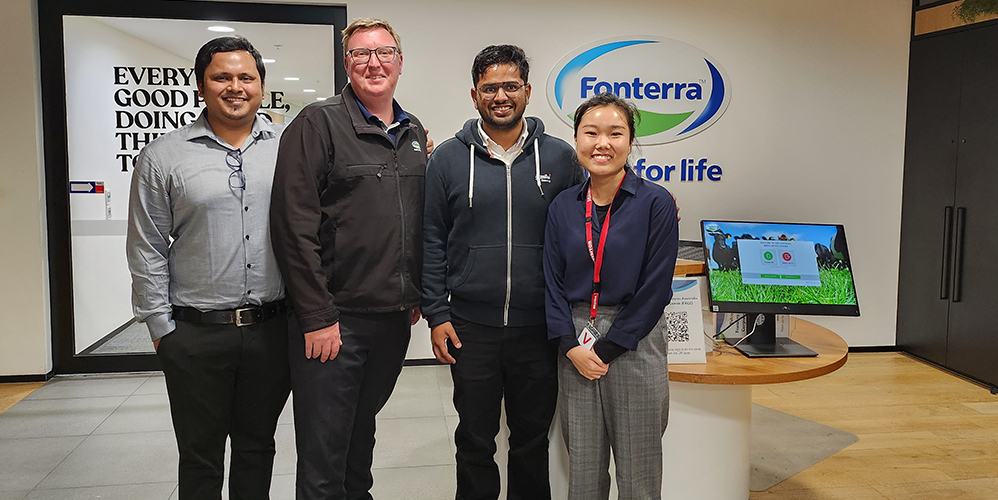Gaining real-life experience is an important part of studying. Recognising the essential role of putting theory into practice, Monash University with funding from Gardiner Foundation, is running the Monash Industry Teams Initiative (MITI). The initiative places small multi-disciplinary teams of students with a dairy manufacturer to solve a specific company challenge over a 12 week period, during the university summer break.
As part of MITI, a group of Monash University students recently finished their placement at a dairy processor.
One of those students was Jessica Lee, who worked at Fonterra for three months. “It was a great way to test my skills and see what I could accomplish,” she said.
Jessica is a data analyst, and the challenge posed to her team worked well with her existing knowledge and skills. “We were asked to analyse the current truck routes and the combination of truck fleets to optimise and reduce costs, to reduce travel time, and to ensure that milk is collected and dropped off within farm collection hours and drivers’ shift time,” Jessica said. “We created a dashboard where a truck driver can choose what route they would take that day and if they’re available. The aim was to be able to recommend the shortest, most compliant route.”
A supervisor works with students to make sure they have everything they require to work on their project. David Wallace was this year’s supervisor at Fonterra. “The students learn a lot in a short amount of time. They gain experience in an operating environment and learn how to negotiate in a large business,” he said. “I was blown away with what they were doing with the coding. Whatever challenge I threw at them they’d come up with a solution within twenty-four hours.”
An important part of the placements is giving students rural exposure. “My favourite part of the project was going out to Stanhope. I’d never been in a truck before and having the experience of not only being in a truck but also in regional Victoria was amazing. I loved visiting the farms and learning more about the process of storing and collecting milk. It was a big eye opener,” Jessica said.
David caught up with the students every few days, providing guidance and support. “I loved watching Jessica and the team developing new skills. They learnt not only from us but also each other,” he said. “When you start anywhere new it can be very daunting. But they gained a lot of confidence.”
The initial project scope was different from what the students ended up working on. “The scope was born out of teaching Jessica how milk production works,” David said.
The project covered about 13,000 kms of roads, involving four networks and a government body. Jessica worked on the programming part of the app, a task that took up most of the allocated time.
“It’s about experience; it’s about working towards a solution. You need to dot all the i’s and cross all the t’s,” David said. “Giving the students a real experience in an operation is a great strength. You only learn by your mistakes. We wanted to leave them with the impression that anything is possible.”
Jessica loved her experience and encourages anyone who’s interested in gaining experience in their field to apply. “Just do it. The best thing that can come out of it is that you have the experience of doing the program. Monash guides you along the way and gives you advice on what to include in your application. That part was incredibly helpful and as much part of the positive experience I had with the program as doing the work itself,” Jessica said.
Applications for processors to submit project scopes are currently open and will close on Friday, 4 August 2023.
For more information on the MITI program or if you are a dairy processor interested in working with Monash students please visit www.gardinerfoundation.com.au/miti.

